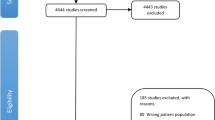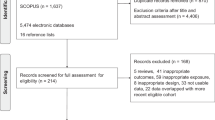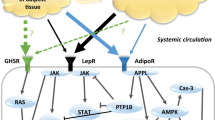Abstract
Background:
Metabolic syndrome (MetS) and prostate cancer (PCa) are highly prevalent conditions worldwide. Current evidence suggests the emerging hypothesis that MetS could play a role in the development and progression of several neoplasms. The aims of this study are to evaluate the impact of MetS and MetS factors on PCa incidence, on the risk of high-grade PCa and to analyze the role of MetS and single MetS components on the development of aggressive PCa features.
Methods:
A systematic literature search and analysis on PubMed, EMBASE, Cochrane and Academic One File databases until September 2015 was performed by 2 independent reviewers to evaluate the associations between MetS and PCa incidence, and between MetS and high-grade PCa incidence (bioptical Gleason Score⩾8, Prognostic Group 4–5 according to the novel prostate cancer grading system). Also the association between MetS and individual MetS components with pathological Gleason Score⩾8, extra-capsular extension, seminal vesicle invasion, positive surgical margins and biochemical recurrence (defined as two consecutive PSA values ⩾0.2 ng ml−1 after radical prostatectomy) was evaluated.
Results:
24 studies were selected including a total of 132 589 participants of whom 17.35% had MetS. There was a slight association between MetS and PCa incidence (odds ratio (OR)=1.17 (1.00–1.36), P=0.04) and between high-grade PCa and MetS (OR= 1.89 (1.50–2.38), P<0.0001) but the studies were statistically heterogeneous. No association was found between MetS components and PCa risk except for hypertension. MetS was significantly associated with pathologic Gleason Score⩾8 (OR= 1.77 (1.34–2.34); P<0.01), extra-capsular extension (OR=1.13 (1.09–1.18); P<0.01), seminal vesicle invasion (OR=1.09 (1.07–1.12); P<0.01), positive surgical margins (OR=1.67 (1.47–1.91); P<0.01) and biochemical recurrence (OR=1.67 (1.04–2.69); P<0.01).
Conclusions:
The presence of MetS is associated with worse oncologic outcomes in men with PCa, in particular with more aggressive tumor features, and biochemical recurrence.
This is a preview of subscription content, access via your institution
Access options
Subscribe to this journal
Receive 4 print issues and online access
$259.00 per year
only $64.75 per issue
Buy this article
- Purchase on Springer Link
- Instant access to full article PDF
Prices may be subject to local taxes which are calculated during checkout






Similar content being viewed by others
References
Jemal A, Bray F, Center MM, Ferlay J, Ward E, Forman D . Global cancer statistics. CA Cancer J Clin 2011; 61: 69–90.
Siegel RL, Miller KD, Jemal A . Cancer statistics, 2015. CA Cancer J Clin 2015; 65: 5–29.
Hsing AW, Sakoda LC, Chua S Jr. . Obesity, metabolic syndrome, and prostate cancer. Am J Clin Nutr 2007; 86: s843–s857.
Esposito K, Chiodini P, Capuano A, Bellastella G, Maiorino MI, Parretta E et al. Effect of metabolic syndrome and its components on prostate cancer risk: meta-analysis. J Endocrinol Invest 2013; 36: 132–139.
Esposito K, Chiodini P, Colao A, Lenzi A, Giugliano D . Metabolic syndrome and risk of cancer: a systematic review and meta-analysis. Diabetes Care 2012; 35: 2402–2411.
Alberti KG, Eckel RH, Grundy SM, Zimmet PZ, Cleeman JI, Donato KA et al. Harmonizing the metabolic syndrome: a joint interim statement of the International Diabetes Federation Task Force on Epidemiology and Prevention; National Heart, Lung, and Blood Institute; American Heart Association; World Heart Federation; International Atherosclerosis Society; and International Association for the Study of Obesity. Circulation 2009; 120: 1640–1645.
Hsing AW, Devesa SS . Trends and patterns of prostate cancer: what do they suggest? Epidemiol Rev 2001; 23: 3–13.
Barnard RJ, Aronson WJ, Tymchuk CN, Ngo TH . Prostate cancer: another aspect of the insulin-resistance syndrome? Obes Rev 2002; 3: 303–308.
Han JH, Choi NY, Bang SH, Kwon OJ, Jin YW, Myung SC et al. Relationship between serum prostate-specific antigen levels and components of metabolic syndrome in healthy men. Urology 2008; 72: 749–754, discussion 754-745.
Zhang PL, Rosen S, Veeramachaneni R, Kao J, DeWolf WC, Bubley G . Association between prostate cancer and serum testosterone levels. Prostate 2002; 53: 179–182.
De Nunzio C, Aronson W, Freedland SJ, Giovannucci E, Parsons JK . The correlation between metabolic syndrome and prostatic diseases. Eur Urol 2012; 61: 560–570.
Liberati A, Altman DG, Tetzlaff J, Mulrow C, Gotzsche PC, Ioannidis JP et al. The PRISMA statement for reporting systematic reviews and meta-analyses of studies that evaluate health care interventions: explanation and elaboration. PLoS Med 2009; 6: e1000100.
Gacci M, Corona G, Vignozzi L, Salvi M, Serni S, De Nunzio C et al. Metabolic syndrome and benign prostatic enlargement: a systematic review and meta-analysis. BJU Int 2015; 115: 24–31.
Zhang JQ, Geng H, Ma M, Nan XY, Sheng BW . Metabolic Syndrome Components are Associated with Increased Prostate Cancer Risk. Med Sci Monit 2015; 21: 2387–2396.
Telli O, Sarici H, Ekici M, Ozgur BC, Doluoglu OG, Eroglu M et al. Does metabolic syndrome or its components associate with prostate cancer when diagnosed on biopsy? Ther Adv Med Oncol 2015; 7: 63–67.
Epstein JI, Zelefsky MJ, Sjoberg DD, Nelson JB, Egevad L, Magi-Galluzzi C et al. A Contemporary Prostate Cancer Grading System: A Validated Alternative to the Gleason Score. Eur Urol 2016 Mar; 69: 428–435.
Beebe-Dimmer JL, Nock NL, Neslund-Dudas C, Rundle A, Bock CH, Tang D et al. Racial differences in risk of prostate cancer associated with metabolic syndrome. Urology 2009; 74: 185–190.
Grundmark B, Garmo H, Loda M, Busch C, Holmberg L, Zethelius B . The metabolic syndrome and the risk of prostate cancer under competing risks of death from other causes. Cancer Epidemiol Biomarkers Prev 2010; 19: 2088–2096.
Pelucchi C, Serraino D, Negri E, Montella M, Dellanoce C, Talamini R et al. The metabolic syndrome and risk of prostate cancer in Italy. Ann Epidemiol 2011; 21: 835–841.
Tande AJ, Platz EA . Folsom AR. The metabolic syndrome is associated with reduced risk of prostate cancer. Am J Epidemiol 2006; 164: 1094–1102.
Lawrence YR, Morag O, Benderly M, Boyko V, Novikov I, Dicker AP et al. Association between metabolic syndrome, diabetes mellitus and prostate cancer risk. Prostate Cancer Prostatic Dis 2013; 16: 181–186.
Bhindi B, Locke J, Alibhai SM, Kulkarni GS, Margel DS, Hamilton RJ et al. Dissecting the association between metabolic syndrome and prostate cancer risk: analysis of a large clinical cohort. Eur Urol 2015; 67: 64–70.
Harding J, Sooriyakumaran M, Anstey KJ, Adams R, Balkau B, Briffa T et al. The metabolic syndrome and cancer: Is the metabolic syndrome useful for predicting cancer risk above and beyond its individual components? Diabetes Metab 2015; 41: 463–469.
Tuohimaa P, Tenkanen L, Syvala H, Lumme S, Hakulinen T, Dillner J et al. Interaction of factors related to the metabolic syndrome and vitamin D on risk of prostate cancer. Cancer Epidemiol Biomarkers Prev 2007; 16: 302–307.
Beebe-Dimmer JL, Dunn RL, Sarma AV, Montie JE, Cooney KA . Features of the metabolic syndrome and prostate cancer in African-American men. Cancer 2007; 109: 875–881.
Castillejos-Molina R, Rodriguez-Covarrubias F, Sotomayor M, Gomez-Alvarado MO, Villalobos-Gollas M, Gabilondo F et al. Impact of metabolic syndrome on biochemical recurrence of prostate cancer after radical prostatectomy. Urol Int 2011; 87: 270–275.
Kheterpal E, Sammon JD, Diaz M, Bhandari A, Trinh QD, Pokala N et al. Effect of metabolic syndrome on pathologic features of prostate cancer. Urol Oncol 2013; 31: 1054–1059.
Leon P, Seisen T, Cussenot O, Drouin SJ, Cattarino S, Comperat E et al. Low circulating free and bioavailable testosterone levels as predictors of high-grade tumors in patients undergoing radical prostatectomy for localized prostatecancer. Urol Oncol 2015; 33: 384 e321–384 e387.
Macleod LC, Chery LJ, Hu EY, Zeliadt SB, Holt SK, Lin DW et al. Metabolic syndrome, dyslipidemia and prostate cancer recurrence after primary surgery or radiation in a veterans cohort. Prostate Cancer Prostatic Dis 2015; 18: 190–195.
Post JM, Beebe-Dimmer JL, Morgenstern H, Neslund-Dudas C, Bock CH, Nock N et al. The Metabolic Syndrome and Biochemical Recurrence following Radical Prostatectomy. Prostate Cancer 2011; 2011: 245642.
Sanchis-Bonet A, Ortiz-Vico F, Morales-Palacios N, Sanchez-Chapado M . The association between metabolic syndrome and prostate cancer: Effect on its aggressiveness and progression. Actas Urol Esp 2015; 39: 154–160.
Zhang GM, Zhu Y, Dong DH, Han CT, Gu CY, Gu WJ et al. The association between metabolic syndrome and advanced prostate cancer in Chinese patients receiving radical prostatectomy. Asian J Androl 2015; 17: 839–844.
Shiota M, Yokomizo A, Takeuchi A, Imada K, Kiyoshima K, Inokuchi J et al. The feature of metabolic syndrome is a risk factor for biochemical recurrence after radical prostatectomy. J Surg Oncol 2014; 110: 476–481.
Laukkanen JA, Laaksonen DE, Niskanen L, Pukkala E, Hakkarainen A, Salonen JT . Metabolic syndrome and the risk of prostate cancer in Finnish men: a population-based study. Cancer Epidemiol Biomarkers Prev 2004; 13: 1646–1650.
Wallner LP, Morgenstern H, McGree ME, Jacobson DJ St, Sauver JL, Jacobsen SJ et al. The effects of metabolic conditions on prostate cancer incidence over 15 years of follow-up: results from the Olmsted County Study. BJU Int 2011; 107: 929–935.
McGrowder DA, Jackson LA, Crawford TV . Prostate cancer and metabolic syndrome: is there a link? Asian Pac J Cancer Prev 2012; 13: 1–13.
Xiang YZ, Xiong H, Cui ZL, Jiang SB, Xia QH, Zhao Y et al. The association between metabolic syndrome and the risk of prostate cancer, high-grade prostate cancer, advanced prostate cancer, prostate cancer-specific mortality and biochemical recurrence. J Exp Clin Cancer Res 2013; 32: 9.
Hammarsten J, Hogstedt B . Hyperinsulinaemia: a prospective risk factor for lethal clinical prostate cancer. Eur J Cancer 2005; 41: 2887–2895.
Ozbek E, Otunctemur A, Dursun M, Sahin S, Besiroglu H, Koklu I et al. The metabolic syndrome is associated with more aggressive prostate cancer. Asian Pac J Cancer Prev 2014; 15: 4029–4032.
De Nunzio C, Simone G, Brassetti A, Mastroianni R, Collura D, Muto G et al. Metabolic syndrome is associated with advanced prostate cancer in patients treated with radical retropubic prostatectomy: results from a multicentre prospective study. BMC Cancer 2016; 16: 407.
Kim HS, Presti JC Jr., Aronson WJ, Terris MK, Kane CJ, Amling CL et al. Glycemic control and prostate cancer progression: results from the SEARCH database. Prostate 2010; 70: 1540–1546.
Jayachandran J, Aronson WJ, Terris MK, Presti JC Jr., Amling CL, Kane CJ et al. Diabetes and outcomes after radical prostatectomy: are results affected by obesity and race? Results from the shared equal-access regional cancer hospital database. Cancer Epidemiol Biomarkers Prev 2010; 19: 9–17.
Lee H, Kuk H, Byun SS, Lee SE, Hong SK . Preoperative glycemic control status as a significant predictor of biochemical recurrence in prostate cancer patients after radical prostatectomy. PLoS ONE 2015; 10: e0124761.
Oh JJ, Hong SK, Lee S, Sohn SJ, Lee SE . Diabetes mellitus is associated with short prostate-specific antigen doubling time after radical prostatectomy. Int Urol Nephrol 2013; 45: 121–127.
Grossmann M, Wittert G . Androgens, diabetes and prostate cancer. Endocr Relat Cancer 2012; 19: F47–F62.
Chan JM, Latini DM, Cowan J, Duchane J, Carroll PR . History of diabetes, clinical features of prostate cancer, and prostate cancer recurrence-data from CaPSURE (United States). Cancer Causes Control 2005; 16: 789–797.
Vignozzi L, Maggi M . Prostate cancer: intriguing data on inflammation and prostate cancer. Nat Rev Urol 2014; 11: 369–370.
Corona G, Vignozzi L, Rastrelli G, Lotti F, Cipriani S, Maggi M . Benign prostatic hyperplasia: a new metabolic disease of the aging male and its correlation with sexual dysfunctions. Int J Endocrinol 2014; 2014: 329456.
Vignozzi L, Rastrelli G, Corona G, Gacci M, Forti G, Maggi M . Benign prostatic hyperplasia: a new metabolic disease? J Endocrinol Invest 2014; 37: 313–322.
Jepsen P, Johnsen SP, Gillman MW, Sørensen HT. Interpretation of observational studies. Heart 2004; 90: 956–960..
Wells GA, Shea B, O'Connell D, Peterson J, Welch V, Losos M et al. The Newcastle-Ottawa Scale (NOS) for assessing the quality of nonrandomised studies in meta-analyses. Available at: http://www.ohrica/programs/clinical_epidemiology/oxfordasp. 2012.
Lund Håheim L, Wisløff TF, Holme I, Nafstad P . Metabolic syndrome predicts prostate cancer in a cohort of middle-aged Norwegian men followed for 27 years. Am J Epidemiol 2006; 164: 769–774.
Martin RM, Vatten L, Gunnell D, Romundstad P, Nilsen TI . Components of the metabolic syndrome and risk of prostate cancer: the HUNT 2 cohort, Norway. Cancer Causes Control 2009; 20: 1181–1192.
Inoue M, Noda M, Kurahashi N, Iwasaki M, Sasazuki S, Iso H et al. Japan Public Health Center-based Prospective Study Group. Impact of metabolic factors on subsequent cancer risk: results from a large-scale population-based cohort study in Japan. Eur J Cancer Prev 2009; 18: 240–247.
De Nunzio C, Freedland SJ, Miano R, Trucchi A, Cantiani A, Carluccini A et al. Metabolic syndrome is associated with high grade Gleason score when prostate cancer is diagnosed on biopsy. Prostate 2011; 71: 1492–1498.
Osaki Y, Taniguchi S, Tahara A, Okamoto M, Kishimoto T . Metabolic syndrome and incidence of liver and breast cancers in Japan. Cancer Epidemiol 2012; 36: 141–147.
Morote J, Ropero J, Planas J, Bastarós JM, Delgado G . Placer J et al. Metabolic syndrome increases the risk of aggressive prostate cancer detection. BJU Int 2013; 111: 1031–1036.
Leon P, Seisen T, Cussenot O, Drouin SJ, Cattarino S, Comperat E et al. Low circulating free and bioavailable testosterone levels as predictors of high-grade tumors in patients undergoing radical prostatectomy for localized prostate cancer. Urol Oncol 2015; 33: e321–387.
Sourbeer KN, Howard LE, Andriole GL, Moreira DM, Castro-Santamaria R, Freedland SJ . et al. Metabolic syndrome-like components and prostate cancer risk: results from the Reduction by Dutasteride of Prostate Cancer Events (REDUCE) study. BJU Int 2015; 115: 736–743.
Kayali M, Balci M, Aslan Y, Bilgin O, Guzel O, Tuncel A et al. The relationship between prostate cancer and presence of metabolic syndrome and late-onset hypogonadism. Urology 2014; 84: 1448–1452.
De Nunzio C, Presicce F, Lombardo R, Cancrini F, Petta S, Trucchi A et al. Physical activity as a risk factor for prostate cancer diagnosis: a prospective biopsy cohort analysis. BJU Int 2015; 117: E29–E35.
Author information
Authors and Affiliations
Corresponding author
Ethics declarations
Competing interests
The authors declare no conflict of interest.
Rights and permissions
About this article
Cite this article
Gacci, M., Russo, G., De Nunzio, C. et al. Meta-analysis of metabolic syndrome and prostate cancer. Prostate Cancer Prostatic Dis 20, 146–155 (2017). https://doi.org/10.1038/pcan.2017.1
Received:
Revised:
Accepted:
Published:
Issue Date:
DOI: https://doi.org/10.1038/pcan.2017.1
This article is cited by
-
Androgendeprivationstherapie und kardiovaskuläre Morbidität beim Prostatakarzinom: ein narratives Review
Die Urologie (2024)
-
Significantly reduced incidence and improved survival from prostate cancer over 25 years
BMC Public Health (2023)
-
Association of metabolic syndrome and its components with the risk of urologic cancers: a prospective cohort study
BMC Urology (2023)
-
Metabolic syndrome and the risk of severe cancer events: a longitudinal study in Japanese workers
BMC Cancer (2023)
-
Metabolic syndrome is associated with aggressive prostate cancer regardless of race
Cancer Causes & Control (2023)



